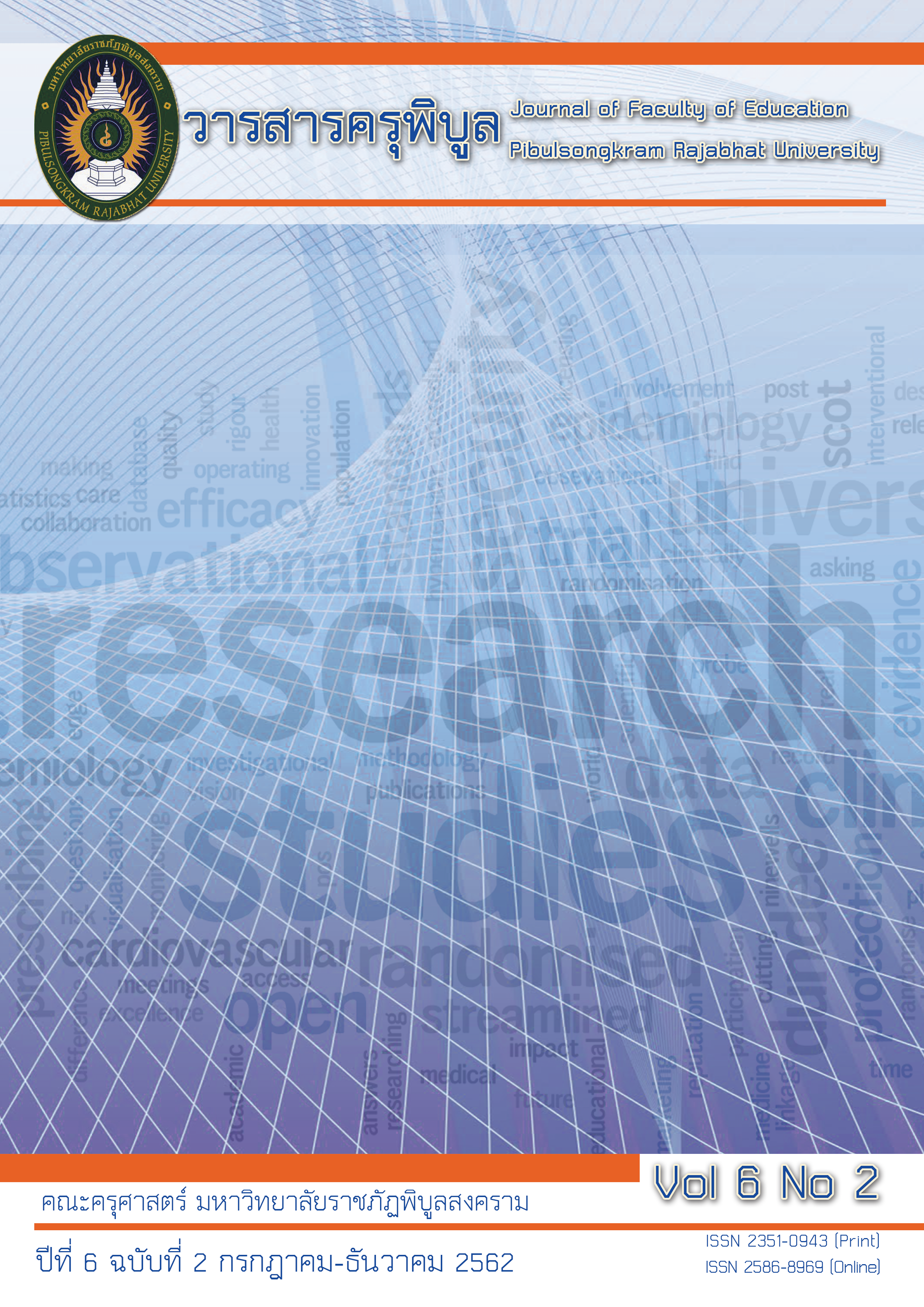EVALUATION OF THE BACHELOR OF THAI TRADITIONAL MEDICINE (REVISED, B.E.2553), KANCHANABHISHEK INSTITUTE OF MEDICAL AND PUBLIC HEALTH TECHNOLOGY
Keywords:
Curriculum Evaluation, Bachelor’s Degree in Thai Traditional Medicine Curriculum, Kanchanabhisek Institute of Medical and Public Health TechnologyAbstract
This research aimed to evaluate the Bachelor’s Degree in Thai Traditional Medicine curriculum (Revised, B.E.2553) at Kanchanabhisek Institute of Medical and Public Health technology by applying the CIPP model. The sample of this research was 226 people including undergraduates, graduates, and graduates’ employers. The research tools were an interview form, a close-ended questionnaire, focus group discussion, and an opinion questionnaire. The data were analyzed using percentages (%), means (x̄), standard deviations (S.D.), and content analysis. The results of the study were as follows:1. The context of the curriculum. It was found that overall the curriculum was appropriate at the high level (x̄ =3.61). The objectives corresponded to the policies, goals, and needs of the Ministry of Public Health at the highest appropriateness level (X = 3.69) whereas the course contents met the least appropriatenesslevel (x̄ = 3.42). 2. The inputs of the curriculum. It was shown that the contents of the courses in the curriculum were applicable at the high level (x̄ = 4.06), and overall the course contents were found up-to-date at the high level (x̄ = 3.92).3. The process of the curriculum. It was found that overall the process of the curriculum was at a moderate level (x̄ = 3.38). The counseling service on learning was the most consistent and was at the moderate level (x̄ = 3.49) while the least consistent was the schedule of courses (x̄ = 3.30)4. The products of the curriculum. It was reveal that the overall quality of the graduates was at the high level (x̄ = 3.99). The graduate identity was at the high level (x̄ = 4.20).
References
ชุติพงศ์ ธนธรรมพิทักษ์. (2555). ความพึงพอใจในการดูแลรักษาแบบแพทย์แผนทางเลือกวิถีพุทธ. คณะเศรษฐศาสตร์ มหาวิทยาลัยเชียงใหม่.
ธีรศักดิ์ อุ่นอารมณ์เลิศ ลุยง วีระนาวิน จุรีวรรณ จันพลา และสัมพันธ์ สุกใส. (2552). การประเมินหลักสูตรศึกษาศาสตรมหาบัณฑิต สาขาวิชาพัฒนศึกษา คณะศึกษาศาสตร์ มหาวิทยาลัยศิลปากร. วารสารศิลปากรศึกษาศาสตร์วิจัย, 1(1), 22-33.
พัชรา บุญมานำ และสมควร ทรัพย์บำรุง. (2553). การประเมินหลักสูตรวิชาศึกษาทั่วไป มหาวิทยาลัยธรรมศาสตร์. คณะศิลปกรรมศาสตร์ มหาวิทยาลัยธรรมศาสตร์ ศูนย์รังสิต.
ภาควิชาการแพทย์แผนไทย. (2559). รายงานผลการดำเนินงานภาควิชาการแพทย์แผนไทย ปีการศึกษา 2558. วิทยาลัยเทคโนโลยีทางการแพทย์และสาธารณสุข กาญจนาภิเษก.
สุรัมภา รอดมณี กรรณิกา เกตุนิล เนาวนิจ พึ่งจันทรเดช และประภาพรรณ เปลี่ยนแก้ว. (2559). การประเมินหลักสูตรพยาบาลศาสตรบัณฑิต (ฉบับปรับปรุง 2549) วิทยาลัยพยาบาลตำรวจ. วารสารพยาบาลตำรวจ, 8(1), 170-181.
อรนันท์ หาญยุทธ และรัชยา รัตนะถาวร. (2556). คุณภาพและอัตลักษณ์ของบัณฑิตคณะพยาบาลศาสตร์ มหาวิทยาลัยอีสเทิร์นเอเชีย ที่สำเร็จการศึกษา ปีการศึกษา 2553. วารสารวิชาการมหาวิทยาลัยอีสเทิร์นเอเชีย, 7(2), 99-107.
อิศเรศ พิพัฒน์มงคลพร ปรณัฐ กิจรุ่งเรือง ดวงหทัย โฮมไชยะวงศ์ วิลาพัณย์ อุรบุญนวลชาติ และวิสูตร โพธิ์เงิน. (2556). การประเมินหลักสูตรศึกษาศาสตรบัณฑิต สาขาวิชาการประถมศึกษา. คณะศึกษาศาสตร์มหาวิทยาลัยศิลปากร.
Downloads
Published
Issue
Section
License
Copyright (c) 2019 Journal of Faculty of Education Pibulsongkram Rajabhat University

This work is licensed under a Creative Commons Attribution-NonCommercial-NoDerivatives 4.0 International License.
ลิขสิทธิ์เป็นของคณะครุศาสตร์ มหาวิทยาลัยราชภัฏพิบูลสงคราม


